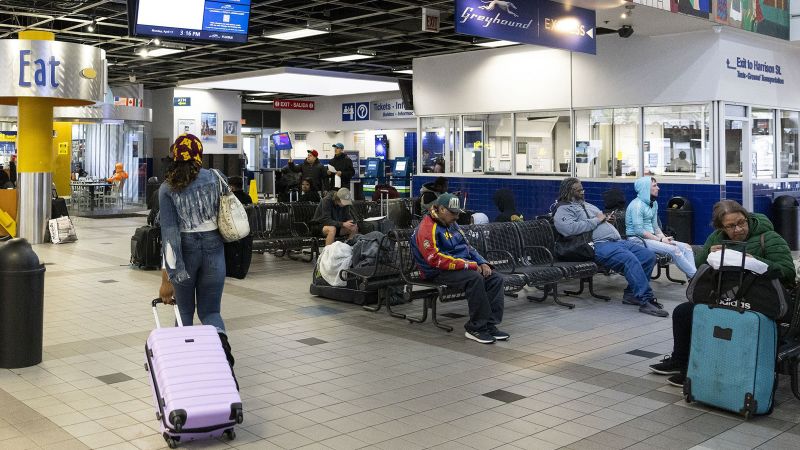Chicago is at risk of losing its only intercity bus terminal, which serves over 500,000 passengers annually and plays a crucial role for low-income, elderly, and minority travelers. The closure of the terminal would force major bus lines like Greyhound, FlixBus, and others to leave the city, leaving many passengers with limited transportation options. City leaders and Greyhound are working to find alternative solutions to maintain intercity bus service in Chicago.
The closure of the terminal would make Chicago the largest city in the Northern Hemisphere without an intercity bus terminal. The terminal serves many low-income passengers, with 73% of Greyhound passengers in Chicago earning less than $50,000 annually, and more than half being Black. Without the terminal, passengers would be forced to wait on the street for long layovers, lacking access to basic amenities like bathrooms and shelter from harsh weather conditions.
Intercity buses are crucial for connecting passengers to various destinations, especially smaller towns without train stations or airports. The closure of the terminal in Chicago would disrupt the comprehensive system of connected bus routes, resulting in service cuts and inconvenience for travelers who rely on bus transportation. Curbside services like Megabus are not a suitable replacement for a dedicated terminal, as they do not offer routes with transfers or necessary amenities for passengers.
Many advocates in Chicago are raising concerns about the potential closure of the terminal, emphasizing the impact on vulnerable travelers and the broader community. The closure would exacerbate the ongoing crisis in intercity bus service in the United States, where cities have faced service cuts and terminal closures in recent decades. Some advocates suggest treating intercity buses as a public utility and call for increased support from state and federal governments to ensure essential bus services for low-income passengers.
Greyhound, which is owned by Flix Mobility, has sold its terminals to investors for redevelopment, leading to concerns about the future of bus services in cities like Chicago. Some cities have faced challenges in relocating terminals or providing adequate facilities for intercity bus passengers. Advocates in Chicago are calling for a publicly owned bus terminal that can connect with other transit options, similar to successful models in other cities like Atlanta. Ultimately, the goal is to provide a public intercity bus terminal that can offer modern amenities and efficient service to passengers.















